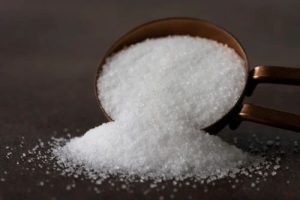Salty Matters (2) By Babatunde Olugboji
In Matthew 5:13 – 16 Jesus addressed His disciples thus: “You are the salt of the earth. But if the salt loses its saltiness; how can it be made salty again? It is no longer good for anything, except to be thrown out and trampled underfoot. You are the light of the world. A town built on a hill cannot be hidden. Neither do people light a lamp and put it under a bowl. Instead, they put it on its stand, and it gives light to everyone in the house. In the same way, let your light shine before others, that they may see your good deeds and glorify your Father in heaven.”
Last week, we started examining Jesus’ statement in light of a believer’s role in society. We touched on some of the essential qualities of salt, including salt being connected with purity, salt as a preservative, and that salt makes food taste better. 
This week, we will examine additional qualities of salt:
- Salt is a precious commodity in Roman times. Soldiers are often paid in salt. The expression, ‘worth his salt’ comes from this practice. The word ‘salary’ also stems from this concept. Salary comes from the Latin word ‘salarium,’ which also means ‘salary’ and has the root ‘sal,’ or ‘salt.’
- Salt in ancient societies is a token of friendship. To share salt with another person denotes companionship. Salt is also used to bind contracts. In 2 Chronicles 13:5 God made a covenant of salt with His friend King David. Salt was also used in Levitical offerings (Leviticus 2:13).
- Salt impact whatever it comes into contact with. Have you noticed that the most obvious characteristic of salt is that it is different from the medium into which its user places it? You can’t use salt to salt, salt. Only something other than salt. Like food.
So, salt must come in contact with that which is to be benefited by it. So, must Christians come in contact with the rest of mankind. Christ did not encourage monasticism or asceticism.
As today’s believers, we are to be different from the world. As salt is an antiseptic, so the disciples are to be a moral disinfectant in a sin-infested world. This requires virtue, however, that comes only through divine grace and self-discipline.
By placing ‘you’ in the emphatic position in the text, Jesus was stressing the unique calling of his disciples. Jesus implied by this metaphor that His disciples could positively affect the world. They had the opportunity through their lives and witness to bring blessing to others and to retard the natural decay that sin produces in life.
When Christ called the apostles the salt of the earth, He meant that it is their office to salt the earth. Men have nothing in them but what is tasteless, till they have been seasoned with the salt of heavenly doctrine. The doctrine, which has been entrusted to them, is shown to be so closely connected with a good conscience and a devout and upright life, that the corruption, which might be tolerated in others, would in them be detestable.
To be continued.
Have a great week.
Join me live on FACEBOOK & YOUTUBE every Sunday at 7am (EST) for an insightful time of the WORD.
+1-732-554-1376 (WhatsApp)
@KingdomChat https://www.facebook.com/KingdomEdifice


